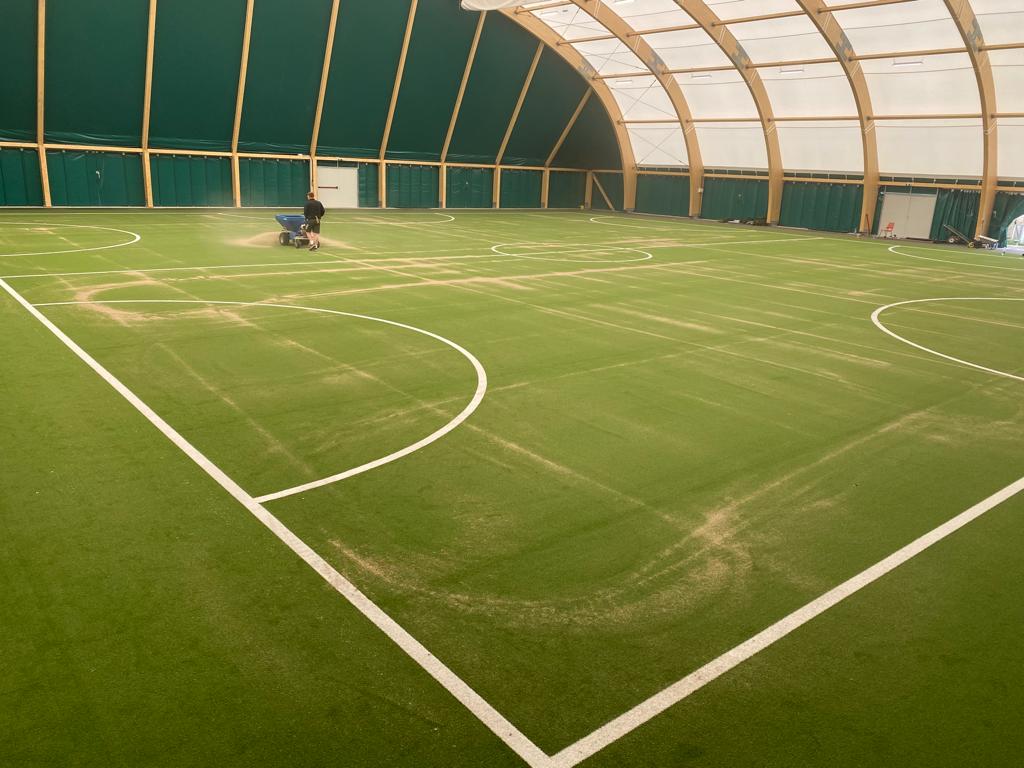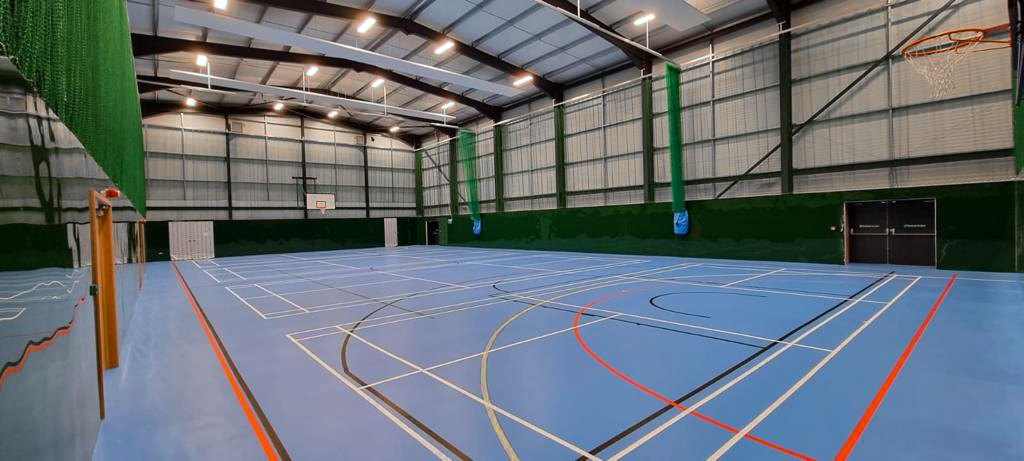As a nation, we love a chat about the weather. According to The Independent, Brits will spend four months of their lives talking about it. The weather is the perfect topic of conversation for small talk as it is common ground that doesn’t run the risk of offending anyone. Our weather is also so unpredictable and varied that there is always something to say about it.
As a business, we probably tip the scales in terms of how much we check the weather forecast and there are some strong opinions among the team about which app is most reliable.
Inevitably, we take an interest because we are outside on a building site most of the time and need conditions to be favourable when we’re ready to install the glulam arcs or pull the fabric cover across the top of the framework for example. In high winds and rainstorms, it’s just not safe to do this, which is as frustrating for us as it is for the customer. We have to build in an allowance for the unpredictability of our weather when scoping out the project schedule so that any unforeseen delays are not completely unexpected.

Most recently, the topic of our weather has been central to conversations around sports facilities. Few things have an ability to depress physical activity more than storms, flooding, frost and extreme heat. Since September, we have already weathered five named storms and grassroots sports are struggling to thrive in current conditions. The number of training sessions and matches that have been cancelled recently because the pitches are unplayable is huge. Outdoor sport is fantastic but when that is no longer an option, it provokes lots of conversations around the provision of more indoor facilities.

Obviously, that is a significant investment but what is encouraging for us is hearing about the different sporting bodies that are starting to join forces and therefore funding so they can develop training centres that are accessible to multiple sports clubs throughout the year. We’ve almost finished a mammoth project in Swansea, which received investment from both the Welsh RFU and the Welsh FA so it could be used for rugby and football. Considering these are both traditional autumn/winter outdoor sports, this is a really positive step forward in helping them grow at grassroots level when the weather stops play outside.
We are getting enquiries all the time too from sports clubs who have installed external padel courts and are now realising that they need a covered structure if they want to be able to use them all year round, employ full time coaches and enhance their appeal to new members. We understand that it requires a bigger financial input if you opt for indoor courts but the long term revenue potential and benefits to overall public health & wellbeing are much greater if you can guarantee play.
